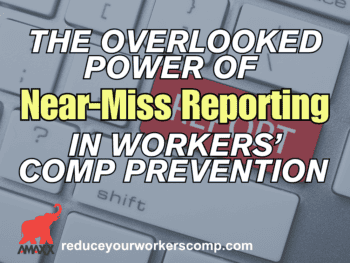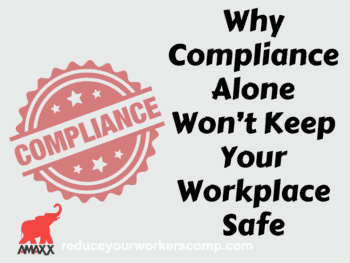
There was a recent case in Georgia where a minor working in a fast food restaurant was severely burned when he slipped, partially fell, and his hand went into the boiling grease of the french fry cooker. This brought up the question: Are their special workers compensation provisions for minors? Yes, teenagers in the work place, under age 18, often have special protections when it comes to workers’ compensation.
Every state requires minors to be covered for workers compensation, just like every other employee. However, most states provide the minor with additional workers compensation protection over and above the standard workers compensation benefits paid to adults. Only the states of Delaware, Nevada, South Dakota and Vermont have workers’ compensation statutes that are totally silent on the subject of employment of minors.
Click Link to Access Free PDF Download
“4-Step Sequence For Effective Employee Screening, Hiring, & Placement”
The additional protections provided to minors can be broken down into three categories.
They are:
- Future Earning Capacity
- Illegal Employment
- Special Benefit Provisions
Future earning capacity comes into consideration when the minor has a permanent partial disability or permanent total disability as the result of the work comp injury. The states vary in how they address how much consideration is given to future earning capacity. The burden of proof is normally on the employee to establish how much the permanent partial disability or permanent total disability will interfere with the employee’s ability to earn wages in the future. It should be noted that a small loss of income per year due to a permanent partial disability can add to up a tremendous settlement amount over a 40 to 50 year work career.
The future earning capacity of the teenager is taken into consideration in 23 jurisdictions – Alaska, Arkansas, California, Colorado, Connecticut, District of Columbia, Florida, Hawaii, Idaho, Iowa, Kentucky, Maryland, Massachusetts, Missouri, New Mexico, New York, North Carolina, Ohio, Oklahoma, Texas, Utah, Wisconsin and Wyoming. In Iowa the future earning capacity is considered only if the minor is an apprentice or a trainee. In North Carolina the future earning capacity of the minor is based on the income of the position the minor would have likely been promoted to as an adult. In Texas, the loss of future earning capacity is considered only if the minor is limited because of apprenticeship, continuing education or education intended to enhance future wages.
The workers compensation statutes on minors take absolutely no pity on the employer who employs minors illegally. This would come into play for the 15 year old employee who does not have a work permit or the minor working in excess of the number of hours per week permitted by the state work comp statutes or the states labor statutes. Some states address the illegal employment of minors by increasing the amount paid to the minor. In Rhode Island the compensation paid to the minor is tripled.
Several other states double the workers compensation indemnity benefits that can be paid. Double compensation is paid in Alabama, Arkansas (if the minor did not misrepresent his age in writing), Connecticut (if under age 16). Florida (if ordered by a work comp judge), Indiana (if under age 16), Maryland, Massachusetts, Mississippi, New Hampshire (if the employer has had previously employed minors illegally), New Jersey, New York, Ohio and Wisconsin (double or triple compensation). In Florida, Indiana, Maryland, Massachusetts, Mississippi, New Jersey and New York it is the employer, not the insurer who pays the extra compensation. These states do not allow the employer to insure for the extra compensation that is paid to the minor. In Wisconsin the additional compensation for illegal employment is not paid to the minor, but is paid to the state fund.
The states of Arizona, California, Connecticut (if age 16 or 17), Illinois, Missouri and Pennsylvania increase the extra compensation paid to a minor that is illegally employed by 50% (fifty percent).
The illegal employment of a minor in Alaska, Illinois, New Jersey, New Mexico and Oklahoma gives the minor the option of taking the injury outside of the workers compensation system and suing the employer for damages.
Most of the states have special benefit provisions in their workers comp statutes to protect minors who have an on-the-job injury. A guardian may be required for the settlement of permanent partial disability or permanent total disability claims in Alaska, Arizona, California, Connecticut, Georgia, Indiana, Kansas, Kentucky, Massachusetts, Minnesota, Mississippi, Missouri, Montana, New York, North Carolina, North Dakota, Ohio, Oregon, South Carolina, Tennessee, Texas, Utah, Virginia, Washington and Wisconsin.
A few states also require all settlements with minors to be approved by their state work comp board, industrial commission or court system. This is true in Alaska, California, Idaho, New York and South Carolina. (WCxKit)
The extra protections provided to minors in most states are there to keep the minor from being exploited. Employers who legally employ minors have little to fear from a workers compensation standpoint, so go ahead and put that teenager to work.
Author Rebecca Shafer, JD, President of Amaxx Risks Solutions, Inc. is anational expert in the field of workers compensation. She is a writer, speaker and website publisher. Her expertise is working with employers to reduce workers compensation costs, and her clients include airlines, healthcare, printing/publishing, pharmaceuticals, retail, hospitality and manufacturing.
Do not use this information without independent verification. All state laws vary. You should consult with your insurance broker or agent about workers comp issues.
©2010 Amaxx Risk Solutions, Inc. All rights reserved under International Copyright Law. If you would like permission to reprint this material, contact contact us.




























Can an 8 year old get workman’s comp in Ohio?
Can I get workers compensation at the age of 16 in Columbus Georgia and can I work regular hours